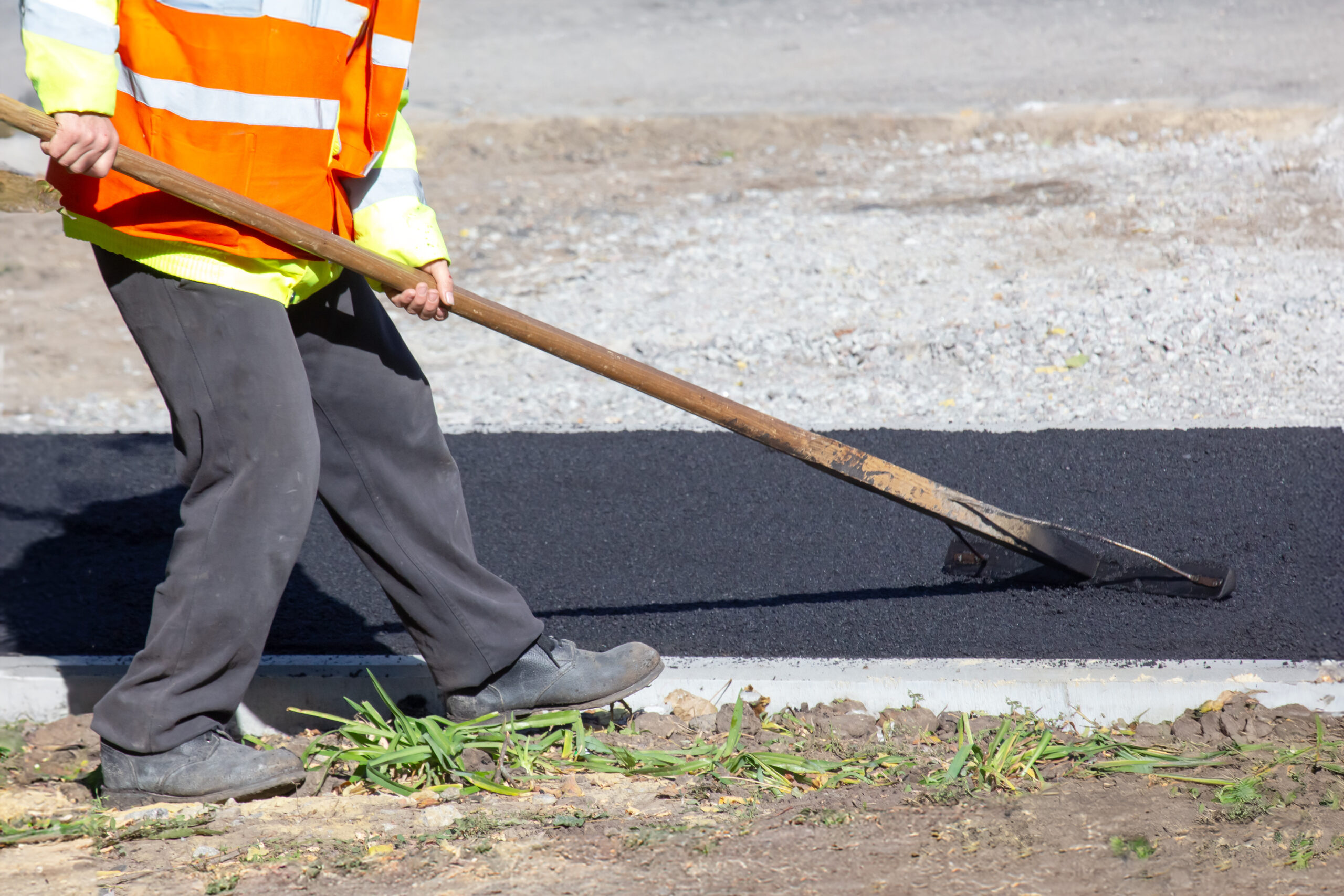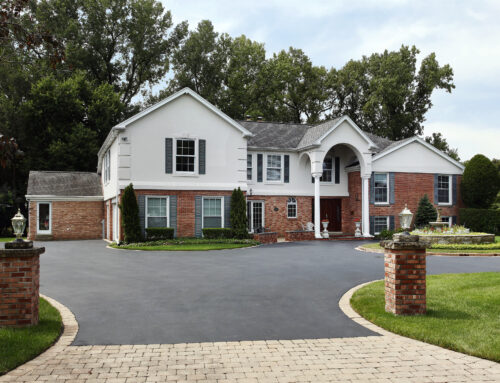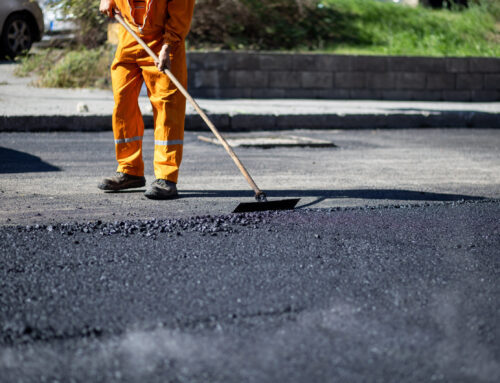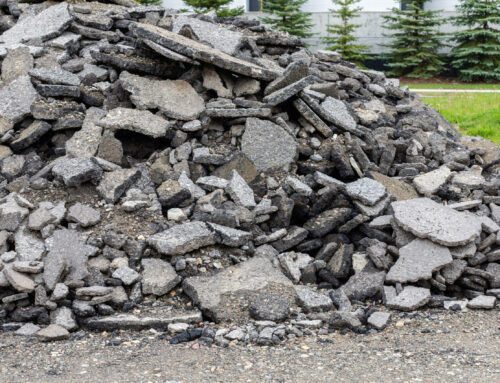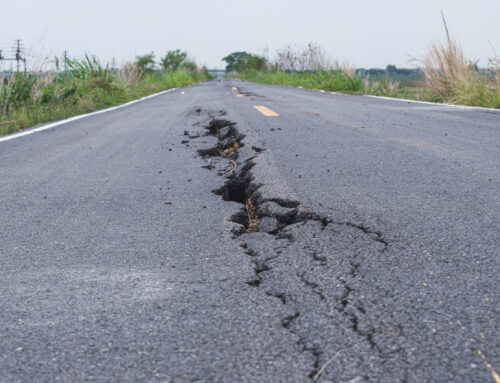Maintaining asphalt is essential to ensuring your property’s longevity, functionality, and appearance. We talk about it all the time! However, when your asphalt surface shows signs of wear and tear, you might wonder whether it’s time for resurfacing or full replacement. The decision between asphalt resurfacing vs. replacement depends on a few factors. This time on the Sunrise blog, we’ll explore the differences between resurfacing asphalt and replacing asphalt, outlining the benefits of each and helping you make an informed decision on the best asphalt maintenance options for your property.
What is Asphalt Resurfacing?
Asphalt resurfacing, also known as overlaying, is the process of applying a new layer of asphalt over the existing surface. This method is typically used when the foundation of the pavement is still intact, but the surface has sustained moderate damage such as cracks, potholes, or uneven wear.
Benefits of Asphalt Resurfacing:
Cost-Effective: One of the primary advantages of resurfacing is that it is less expensive than full replacement. You’re only adding a new layer of asphalt rather than tearing out the old pavement and starting from scratch.
Quick Installation: Resurfacing is a faster process, allowing you to restore the pavement’s appearance and function without lengthy downtime.
Extended Pavement Life: By adding a new surface layer, you can extend the lifespan of your asphalt by 8 to 15 years, depending on the condition of the underlying structure.
Aesthetic Improvement: Resurfacing gives your pavement a fresh, new look, improving curb appeal and boosting the value of your property.
When to Choose Asphalt Resurfacing:
Minor Surface Damage: If your asphalt has cracks, minor potholes, or surface wear but no significant structural issues, resurfacing can provide a smooth, durable finish.
Solid Base Layer: If the base layer of your asphalt is still in good condition, with no signs of major foundational problems, resurfacing is a viable option.
Age of the Asphalt: Resurfacing is typically recommended for asphalt surfaces that are 10-15 years old and showing signs of wear but aren’t in need of a full replacement.
What is Asphalt Replacement?
This is pretty obvious, but replacing asphalt involves completely removing the existing asphalt surface and its foundation before installing a brand-new structure. This process is necessary when the existing pavement has deteriorated to the point where resurfacing would no longer be effective.
Benefits of Asphalt Replacement:
Complete Structural Renewal: Full replacement allows you to rebuild the pavement from the ground up, addressing any foundational issues that may have contributed to surface damage.
Longer Lifespan: New asphalt installations generally last 20-30 years, providing a long-term solution for heavily damaged pavement.
Enhanced Durability: When you replace the asphalt, you’re starting with a fresh foundation and surface, making the pavement more durable and capable of withstanding heavy traffic or extreme weather conditions.
Fixing Drainage Issues: Replacement offers the opportunity to fix underlying drainage problems that could be causing cracks, potholes, or water damage to the asphalt.
When to Choose Asphalt Replacement:
Extensive Damage: If your pavement has widespread cracks, potholes, or other serious structural damage, resurfacing won’t be enough to fix the problem. Replacement is the best solution in these cases.
Foundation Issues: If the base layer of the pavement has deteriorated or shifted, resurfacing would only serve as a temporary fix. Full replacement ensures the foundation is stable and prevents future damage.
Old Asphalt: If your asphalt is more than 20 years old and has undergone multiple repairs, it might be time for a complete replacement to restore its full functionality and appearance.
Key Differences Between Asphalt Resurfacing and Replacement
Now that we’ve covered the basics of resurfacing and replacement, let’s summarize the key differences between these asphalt maintenance options to help you make the right choice for your property.
1. Cost
Resurfacing: More affordable, typically costing around one-third to half of what replacement costs. Since resurfacing doesn’t involve removing the old asphalt or rebuilding the foundation, labor and materials costs are lower.
Replacement: More expensive due to the need for full removal of the existing asphalt and rebuilding of the foundation. However, the longer lifespan of a replacement can offset these costs over time.
2. Time
Resurfacing: Quicker to complete, often taking just a day or two, depending on the size of the project. It allows you to restore the surface without extensive disruption to your property.
Replacement: More time-consuming, as the old asphalt must be removed, the foundation rebuilt, and a new surface applied. This process can take several days to complete, leading to more downtime.
3. Extent of Damage
Resurfacing: Ideal for properties with minor surface damage such as cracks or potholes, provided the foundation is still stable and functional.
Replacement: Necessary for pavements with severe damage that affects both the surface and the foundation. This option is best for restoring heavily damaged, uneven, or shifting pavement.
4. Durability
Resurfacing: Adds 8-15 years to the life of your pavement, making it a temporary fix for properties with minor issues.
Replacement: A new asphalt installation can last 20-30 years, making it a long-term investment in the durability and safety of your property.
Making the Right Choice for Your Property
When deciding between asphalt resurfacing vs. replacement, the primary factors to consider are the condition of the existing pavement, your budget, and the long-term needs of your property. If your asphalt is in good condition and only requires minor repairs, resurfacing is a cost-effective and efficient solution. On the other hand, if your pavement has significant structural issues or is nearing the end of its lifespan, replacement offers a more durable and comprehensive fix.
To determine the best course of action, it’s always a good idea to consult with a professional asphalt contractor who can assess your property and provide expert recommendations on whether resurfacing or replacement is right for you. That’s where Sunrise Asphalt comes in!

